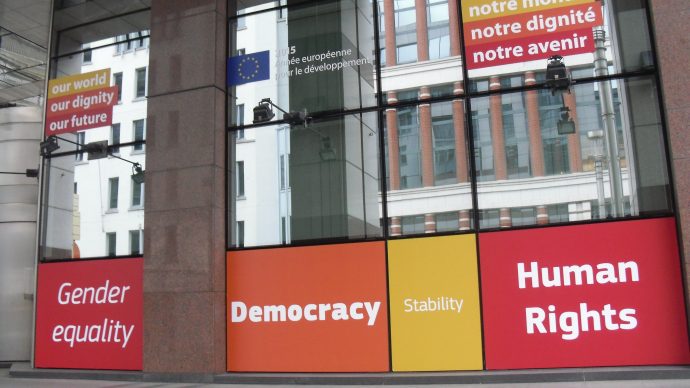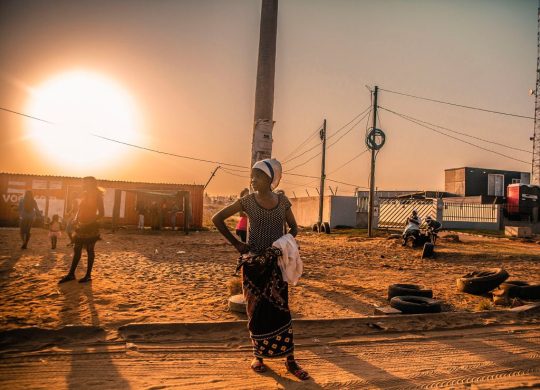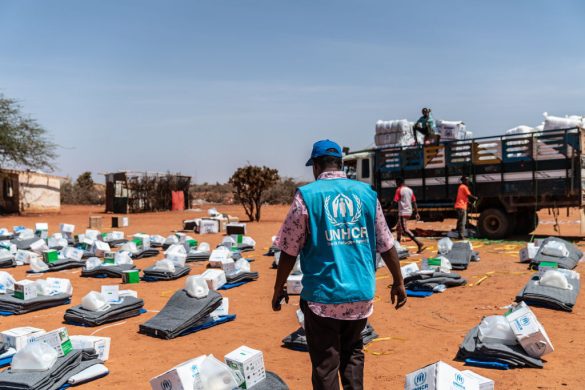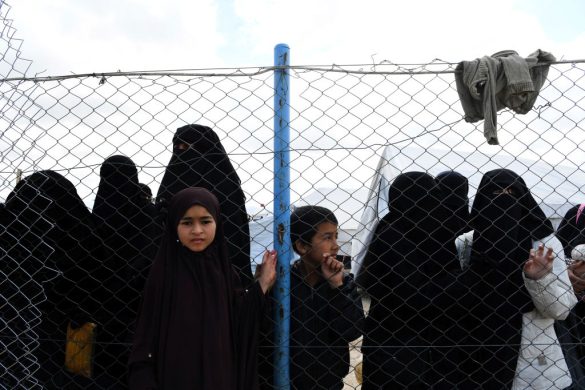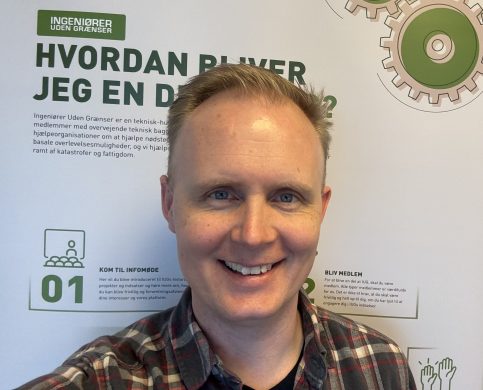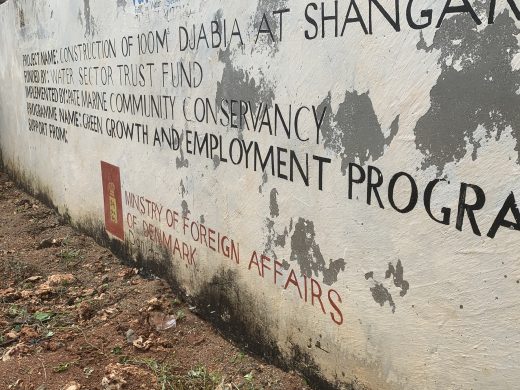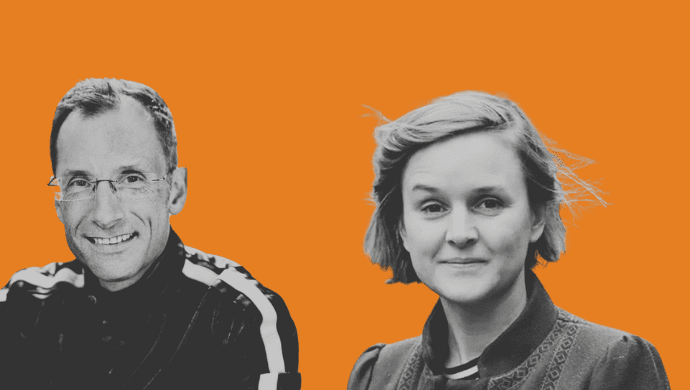In the proposal for a new "European Consensus on Development", presented by High Representative/Vice-President Federica Mogherini and Commissioner for International Cooperation and Development, Neven Mimica, the European Commission puts forward a shared vision and framework for action for development cooperation for the European Union and its Member States.
It proposes a blueprint for aligning the Union's development policy with the UN 2030 Agenda for Sustainable Development, as part of the international community's agreed response to new trends and challenges posed by globalisation.
It suggests an ambitious, new and collective European development policy, which addresses in an integrated manner the main orientations in the 2030 Agenda: people, planet, prosperity, peace, and partnership.
The Consensus contributes to the objectives and values of EU external action, as agreed in Lisbon Treaty. It also supports the Global Strategy on the EU's Foreign and Security Policy presented in June 2016 by the High Representative of the Union for Foreign Affairs and Security Policy, which provides a vision for Europe's engagement in the world and promotes resilience at all levels to build peace and prosperity.
The Sustainable Development Goals (SDGs) will be a cross-cutting dimension for the implementation of the EU's Global Strategy.
Why do we need a new Consensus on Development?
The world is more complex and interconnected than ever, and so are the challenges we face. In order to eradicate poverty and achieve sustainable development, we need to take a more comprehensive and universal approach.
We have to understand and take into consideration that interventions in one field of action have impacts in other areas.
Therefore, our development policy needs to give more prominence to key drivers with cross-cutting transformative potential, such as gender equality, youth, sustainable energy and climate action, investment, migration and mobility. Women and youth in particular must be seen not just as beneficiaries, but as drivers of development.
This was also recognised by the United Nations in September 2015, when the international community adopted the 2030 Agenda with the17SDGs at its core.
It represents a comprehensive, universal framework for all countries to work together to eradicate poverty and attain sustainable development. It is supported by other international initiatives and summits in 2015, including in Addis Ababa on Financing for Development and in Paris on Climate Action.
The European Union had a leading role in the efforts for the adoption of such an ambitious agreement and is fully committed to implementing it. In order to do so, these fundamental changes in the way we want to respond to global challenges, now also need to be reflected in EU development policy.
A lot has changed since 2005, when the original European Consensus on Development, based on the Millennium Development Goals (MDGs), was agreed as a Joint Statement by the EU institutions and Member States.
What is new about the proposed Consensus?
The new Consensus will provide the framework for a common approach to development policy shared by and applied by the EU and its Member States, working together to implement the 2030 Agenda.
The Commission Communication proposes that the EU and Member States work more closely together based on shared analysis, common strategies, joint programming, joint action and improved reporting, to increase the credibility, effectiveness and impact of EU and Member States development cooperation.
It responds to the 2030 Agenda and to all 17 Sustainable Development Goals, balancing the economic, social, environmental dimensions of sustainable development, as well as peaceful and inclusive societies.
It is structured around the five core themes of the 2030 Agenda: People, Planet, Prosperity, Peace and Partnership, addressing these in an integrated manner, recognising that action in one area has an impact in others.
The proposal reflects the paradigm shift established by the Addis Ababa Action Agenda – which is an integral part of the 2030 Agenda – placing domestic actions and sound policies at its heart.
It reflects the fact that each country has primary responsibility for its own economic and social development and promotes a new global partnership for sustainable development, encompassing policies and financial means.
When adopted, the new Consensus will also contribute to the objectives and values of EU external action, as agreed in the Lisbon Treaty.
It supports the Global Strategy on the EU's Foreign and Security Policy (EUGS), which provides a vision for Europe's engagement in the world, promoting resilience at all levels to build peace and prosperity, and highlighting the importance of the SDGs.
Development policy is an essential part of the range of EU policies to tackle global challenges, manage interdependence, and build a better world.
How will the European Union improve its development cooperation?
With the new Consensus, the objective is to do more, do it better and do it differently.
- "Do more": The new Consensus should integrate more systematically the economic, social and environmental dimensions. This requires giving more prominence to key drivers such as gender equality, youth, sustainable energy and climate action, investments, migration and mobility. It also means demonstrating the contribution of development policy to tackle global interconnected challenges, such as conflict, migration, economic growth and jobs, and climate change.
- "Do it better": The new Consensus should foster a more coordinated approach to development between the EU and its Member States, promoting joint programming and joint actions and making the most of tools such as budget support, trust funds and blending. It should also demonstrate a real cultural shift from inputs to outputs when it comes to measuring the effectiveness of our development actions, focusing on results. It will support greater efforts for policy coherence for development.
- "Do it differently": The EU and its Member States together continue to be the world's largest development and humanitarian aid donor. The new Consensus should put forward a package that combines Official Development Assistance with domestic resource mobilisation and private sector investment, supported by sound policies. It also requires differentiated, better-tailored partnerships with partner countries at different levels of development – to combine focus on poorest and fragile partners with innovative partnership with Middle Income Countries – and with a broad range of other stakeholders.
How could the new Consensus approach translate into concrete action?
The new Consensus should frame all development policy activities of the EU and its Member States. The Commission's proposal includes a series of examples of how EU development policy might change in response to the 2030 Agenda:
- The EU is a global leader in promoting gender equality and women and girls' empowerment in its external relations, particularly through the comprehensive EU Gender Action Plan 2016-20. Under the new Consensus, the EU and its Member States should step up efforts to promote the economic and social rights and empowerment of women and girls; strengthen their voice; and tackle violence against them.
- The EU and its Member Statesshould increase the focus on supporting youth and improving their future prospects. This includes increasing quality employment and entrepreneurship, and supporting effective education, vocational training, skills development, and access to digital technologies and services. The EU should also aim to strengthen youth empowerment and participation in local economies, societies, and decision-making.
- The EU and its Member States should address sustainable energy needs by contributing towards universal access to energy services that are affordable, modern, reliable, and sustainable, with a strong focus on renewable energy. Strategic investments in sustainable energy could be used to help build a healthy energy sector and to leverage private finance. This would go hand in hand with continued EU leadership in tackling climate change and supporting third countries to do the same.
- The proposed European External Investment Plan is an example of a 'smarter' use of Official Development Assistance to leverage funding from other sources, create quality and decent jobs, and generate inclusive sustainable growth for the benefit of the poorest. It will encourage investments that otherwise would not happen – for example in conflict-affected areas or where economic governance is lacking.
- Development cooperation will play an important part within the full range of policies and instruments of the EU and its Member States in efforts to prevent, manage and help resolve conflicts and crises, meet humanitarian needs and build lasting peace and good governance.
- TheEU and its Member States should step up efforts to better manage migration and forced displacement in partner countries, including addressing its root causes. They will help to facilitate the safe, orderly regular and responsible migration and mobility of people, in order to seize the opportunities for development offered by migration, while addressing its challenges.
- The EU and its Member States should develop new partnerships with more advanced developing countries to promote the 2030 Agenda and other shared interests. The need for tailored approaches to implement the 2030 Agenda implies combining a focus of aid on the poorest and fragile states, with innovative partnerships with Middle Income Countries, promoting best practice, technical assistance and knowledge sharing.
- The 'Collect More, Spend Better' approach reflects the major emphasis placed by the 2030 Agenda and the Addis Ababa Action Agenda on domestic action and domestic resource mobilisation.The approachsupports developing countries in three areas: improved domestic resource mobilisation; more effective and efficient public expenditure; and debt management. It addresses tax evasion, tax avoidance and illicit financial flows, as well as the efficiency, effectiveness and fairness of tax systems and of social protection systems.
How will the new Consensus relate to other EU initiatives?
The 2030 Agenda is applicable to all countries, including the EU and its Member States. The EU is committed to implementing it through both internal and external action.
Thus the proposed Consensus is intended as part of a broader EU response and fits within the plan on "Next steps for a Sustainable European Future", as laid down in the Communication also published today. It is also fully consistent with the Global Strategy on the EU's Foreign and Security Policy (EUGS).
The EUGS focuses on enhancing resilience of states and societies at all levels – starting from Africa, the EU's Neighbourhood and Central Asia. It includes multiple links to the 2030 Agenda.
The SDGs will be a cross-cutting dimension for the implementation of the EUGS. The new Consensus will also be consistent and coordinated with the implementation of the Paris climate change agreement.
The Consensus will guide actions in the context of regional agreements, strategies and policies in relation to developing countries. The future frameworks for relations with countries including in Africa, the Caribbean and the Pacific, will promote concrete implementation of the 2030 Agenda at regional level.
What are the next steps in the process?
The Communication contains the European Commission's proposal for the new European Consensus on Development. Over the coming months, this will be discussed by EU Member States at the Council and by the European Parliament.
The objective is to agree on a joint text, a common framework for European development policy under the shared ownership of EU institutions and Member States. It is estimated that inter-institutional discussions could be concluded in the form of a Joint Statement in the first half of 2017.

